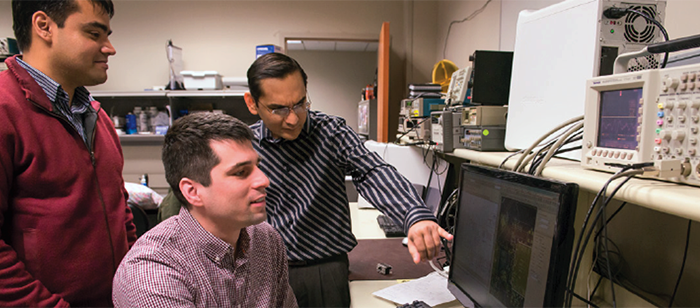talk: Banerjee, Wearable Sensors for Individuals with Mobility Impairments

The UMBC CSEE Seminar Series Presents
Wearable Sensors for Individuals
with Mobility Impairments
Nilanjan Banerjee
Associate Professor, CSEE Dept., UMBC
1-2pm Friday, 6 November 2015, ITE 325
More than 500,000 individuals in the US are hospitalized every year due to spinal cord injuries. The severity of the injury dictates the degree of mobility that an individual has. All mobility impaired individuals rely on assistive devices to perform their daily life activities. Present assistive devices, however, are cumbersome, expensive, and limited. To this end, in this talk I will present two minimally intrusive systems — InviZ and Tongue-n-Cheek that can be used for environmental control in individuals with limited mobility. InviZ is based on textile capacitive sensors built into clothing and is used for gesture recognition; Tongue-n-Cheek is a micro-radar based system for tongue gesture recognition. This is joint work with Ryan Robucci and Chintan Patel and students in the ECLIPSE cluster at UMBC (eclipse.umbc.edu)
Nilanjan Banerjee is an associate professor in the CSEE Dept. at UMBC. He is a 2011 NSF Career Awardee and received a Microsoft Research Software Engineering Innovations Award. His research interests are in embedded systems, mobile systems, and sensor design.
Hosts: Professors Fow-Sen Choa (Sorry, you need javascript to view this email address. ) and Alan T. Sherman (Sorry, you need javascript to view this email address. )
Posted: November 3, 2015, 12:56 PM